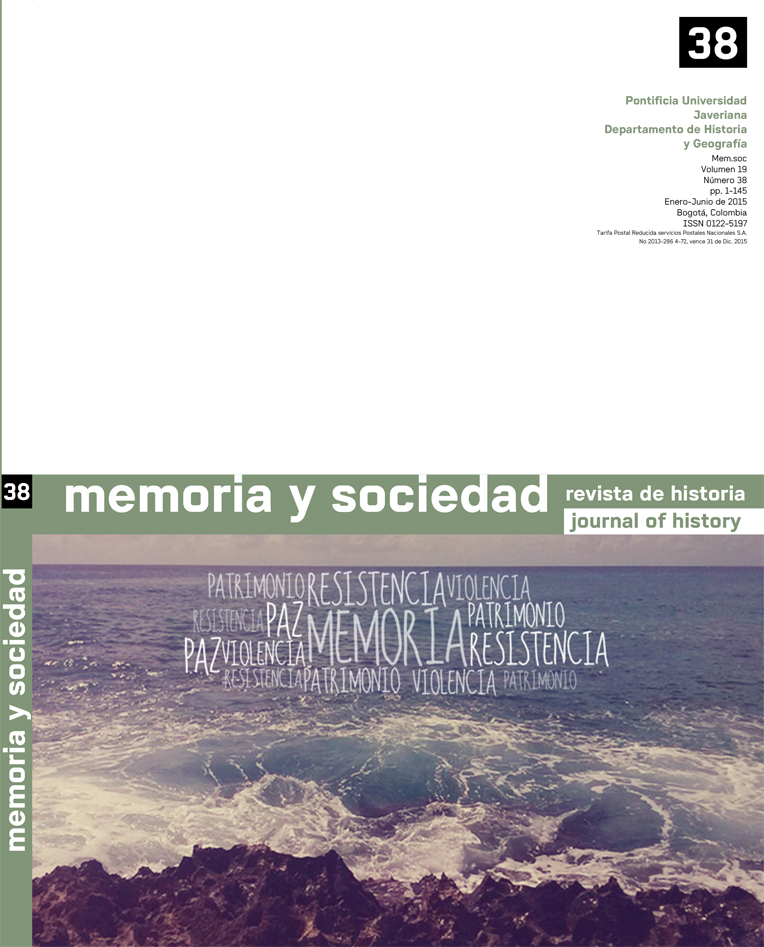Abstract
Violence as a political tool has been a constant in the Colombian internal conflict for more than 25 years, when the paramilitary phenomenon began a dramatic rise that later led it to co-opt a considerable part of the institutions in the early twenty-first century. Paramilitarism, drug trafficking and guerrillas have generated hundreds of thousands of victims in Colombia. Nowadays, when the Colombian State advances the peace negotiations with the main guerrilla group, the victims’ rights create tension between those who demand their full implementation and those who consider that in transitional justice contexts there are possibilities for balancing between the victims’ rights and the existence of a legal framework that could enable negotiating the end to the conflict. In this context, the story of Gloria Mancilla, one of the victims of the conflict, is presented, as well as her demands for truth and justice in the ongoing peace negotiations.The journal Memoria y Sociedad is registered under a Creative Commons Attribution 4.0 International Public License. Thus, this work may be reproduced, distributed, and publicly shared in digital format, as long as the names of the authors and Pontificia Universidad Javeriana are acknowledged. Others are allowed to quote, adapt, transform, auto-archive, republish, and create based on this material, for any purpose (even commercial ones), provided the authorship is duly acknowledged, a link to the original work is provided, and it is specified if changes have been made. Pontificia Universidad Javeriana does not hold the rights of published works and the authors are solely responsible for the contents of their works; they keep the moral, intellectual, privacy, and publicity rights.
Approving the intervention of the work (review, copy-editing, translation, layout) and the following outreach, are granted through an use license and not through an assignment of rights. This means the journal and Pontificia Universidad Javeriana cannot be held responsible for any ethical malpractice by the authors. As a consequence of the protection granted by the use license, the journal is not required to publish recantations or modify information already published, unless the errata stems from the editorial management process. Publishing contents in this journal does not generate royalties for contributors.

